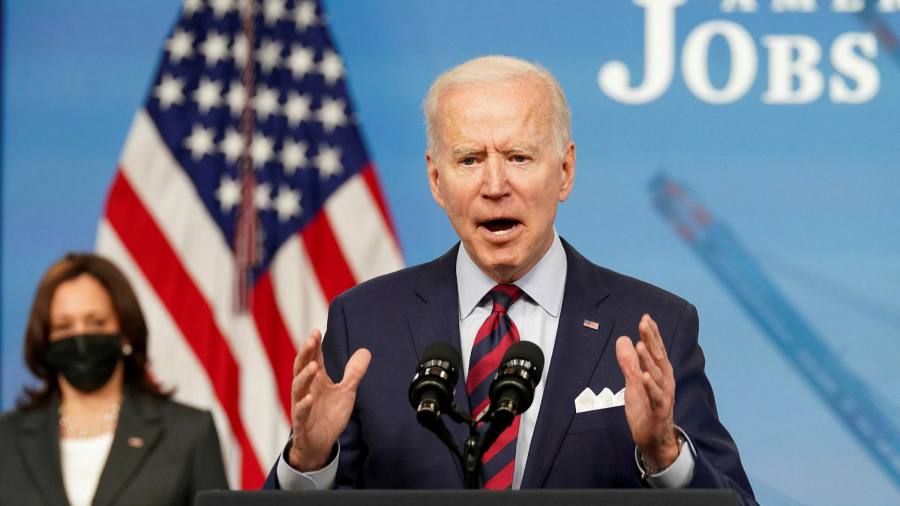
The Biden government has proposed a new model for taxing multinational corporations, calling on the world’s largest corporations to pay taxes to national governments based on their sales in each country, as part of a deal on a global minimum tax.
In documents sent to the 135 countries negotiating international taxation with the OECD in Paris and obtained by the Financial Times on Wednesday, the U.S. Treasury set out a plan that would apply to the global profits of the very largest corporations, including major US technology groups. regardless of their physical presence in a particular country.
The aim of the plan is to spur negotiations at the OECD, the international organization of rich countries, with the promise of a more stable international tax system that would halt the proliferation of national digital taxes and break the mold of tax avoidance and profit shifting. by many multinationals.
The U.S. concession during the week of the IMF and World Bank spring rallies comes after the White House called for an increase in U.S. corporate tax by about $ 2.5 trillion over the next 15 years to pay more than $ 2 trillion in investment in infrastructure, clean energy and manufacturing.
After nearly a decade, the OECD tax negotiations have split into two parts. The first pillar is designed to institute a new taxation regime for the largest multinational corporations, while the second pillar is designed to address the global minimum tax rate, which the US is aiming for at 21 percent.
An agreement with the OECD would allow Joe Biden’s government to increase corporate taxes on US companies without fear of being undermined by other countries because it would include a widely applied global minimum tax rate.
If the US plan is accepted, other countries could increase the revenues of major US technology corporations and other multinational corporations that operated in their jurisdictions but paid little corporate tax.
Washington’s offer reflects Biden’s broader goal of ending what officials have described as a race-to-the-bottom in global taxation that has deprived governments of the revenue needed to provide basic services and investment. to fund.
Negotiations on international taxation have stalled at the OECD for years because the US has objected to what they see as attempts by other countries to negotiate agreements that discriminate against US multinational corporations, especially large US technology companies.
The Trump administration had pushed for a “safe harbor” provision that would make compliance by US technology groups voluntary. Shortly after taking office this year, Biden dropped that question, but this week’s proposal offers a new solution.
The US Treasury is now offering a different formula in which only the world’s largest and most profitable companies would be subject to the new rules, regardless of their industry, based on their income levels and profit margins. This would likely include about 100 companies, including the major US technology corporations and other extremely large multinational corporations.
The proposals have already been shared with the OECD, which is convening negotiations and seeking to bring countries together to generate the outline of a global deal by the summer.
Pascal Saint-Amans, head of tax administration at the OECD, welcomed the US proposals. “This is restarting the negotiations and is very positive,” he said. “It is a serious proposal with a chance of success in both [international negotiations] and the United States Congress. Peace is more important than anything and this would stabilize it [international corporate tax] system in the post-coronavirus environment. “
Saint-Amans added that the proposal would likely generate as much revenue for other countries as the OECD’s suggestion itself, while also allowing the US to raise the desired money from the largest companies.
Many international tax activists have said that the OECD’s proposals did not go far enough or gave insufficient powers to tax emerging economies. The US proposals do not significantly change this feature, although the US documents suggest the US is willing to be flexible on some details.
An agreement would help resolve the transatlantic trade dispute between the US and several countries that have introduced taxes on digital services instead of a broader multilateral agreement.
Washington has threatened to apply tariffs to France, the UK, Italy, and Spain, among others, on the digital taxes that US tech companies have to pay on the grounds that the taxes unfairly discriminate against US companies.